Impact
About
Seven refugee-led organisations (RLOs) in Kenya, Zimbabwe and Uganda are working together to address issues around climate change that affect their communities and promoting climate smart agricultural livelihood opportunities for their communities.As part of the collective, RLOs share knowledge, skills, experiences and best practices as they aim to build resilience and sustain and develop prosperity in communities under constraints brought about by climate change harshness.
Refugee settlements like Kakuma refugee camp in Kenya, Tongogara Refugee Settlement in Zimbabwe, Kyaka II refugee settlement in Kyegegwa, Uganda among other refugee hosting areas in African countries often lack adequate infrastructure to withstand extreme weather events. This makes them highly susceptible to damage from floods, storms, and heatwaves, putting lives at risk and exacerbating already poor living conditions.
In a nutshell, refugees are particularly vulnerable to the impacts of climate change due to their pre-existing challenges related to displacement, lack of resources, and precarious living conditions. A number of these communities sit on the frontline of climate vulnerable regions, their resilience and capacity respond is critical for today and the future.
Climate-Related Activities and RLO Involvement
In the face of escalating climate challenges, communities are taking proactive steps to adapt and mitigate environmental impacts. From creating awareness about climate change effects and mitigation strategies to actively engaging in environmental clean-up efforts, RLOs are at the forefront of these initiatives. With a strong commitment to tree planting, they are fostering reforestation and regenerative agriculture practices. Training for adapting agricultural practices ensures that families can cultivate resilient crops. By promoting proper waste disposal and effective water usage, they are safeguarding their resources. The dedication to renewable energy solutions reflects a collective ambition for a sustainable future, highlighting the critical role of community involvement in addressing climate-related issues.
KNOWLEDGE & INSIGHTS:
Many refugee hosting areas depend on firewood as the main source of fuel leading to deforestation and soil degradation.
Many refugee-hosting regions rely on wood and charcoal for cooking fuel, which contributes to environmental degradation. For example, in Uganda, where more than 1.5 million refugees reside, over 90% of refugees depend on wood for fuel, leading to deforestation and soil erosion. This not only harms local ecosystems but also increases competition for resources between refugees and host communities.
Major refugee-hosting countries are in regions already prone to climate-related impacts, including droughts, desertification, and flooding.

Weeks of heavy rainfall and flooding in the East Africa region has triggered widespread displacement with hundreds of thousands displaced across Burundi, Kenya, Rwanda, Somalia, Ethiopia and Tanzania. So far 637,000 people have been affected including 234,000 displaced as of 3 May 2024 according to the UN Office for Coordination of Humanitarian Affairs, but the numbers keep rising.
Unpredicted rainfall due to effects of climate change leads to drought and soil degradation in refugee hosting areas
According to the World Food Programme (WFP), climate change could increase the number of people at risk of hunger globally by up to 183 million by 2050, with refugee populations being disproportionately affected. In Uganda's Bidibidi Refugee Settlement, one of the largest in the world, refugees rely heavily on subsistence farming, which is increasingly at risk due to unpredictable rainfall and soil degradation.
CONTEXT & CHALLENGES
Climate change is disproportionately affecting refugee-hosting areas of Africa with 84% of refugees residing in climate-change hotspots (UNHCR, 2022). Access to natural resources is vital to provide refugees with income, food and water security yet climate change is reducing the availability and increasing competition for such resources.
Refugees already face multiple socio-economic and political barriers to realising sustainable livelihoods, good nutrition, adequate health care and opportunities for quality education and mobility.
As such, refugees and hosting communities are more exposed and sensitive to the impacts of climate change on their health and livelihoods and less able to absorb and adapt to the increasing frequency of extreme weather events. RLOs such as FARMING & HEALTH EDUCATION, Refugee Coalition for Climate Action, LIVE IN GREEN (Live in Green Live in Wealth Youth Initiative); FRADI (Fraternity for Development Integrated); HODARI Foundation (HF); Faulu Productions and Refugee brotherhood have spearheaded numerous projects that respond to issues around climate change, linking climate adaptation with migration and displacement, their responses have shown resilience as they are community led, relevant to their contexts and, importantly, considering sustainability in through their initiatives.
LIVE IN GREEN's STORY OF CHANGE
SUSTAINABILITY BORN OUT OF DISPLACEMENT: THE ORIGIN TALES OF LIVE IN GREEN
In the heart of Bukere, Kyaka II refugee settlement in Kyegegwa, Uganda, a remarkable transformation is taking place. Amid challenges the refugees face from displacement, Live in Green formed as a Refugee-led Organization dedicates its efforts towards combating climate change and promoting sustainable living. Our journey is not about survival; it is a story of resilience, empowerment, and hope
The Spark of Inspiration
For Ndayishimiye, a Congolese refugee, the journey began in her hometown of Rutchuru – North Kivu. “I remember the lush gardens and the vibrant community,” she reflects. “But after the war, everything changed. We lost our homes, our way of life.” After fleeing to Uganda, Ndayishimiye found herself in the Kyaka II refugee settlement, grappling with loss but determined to rebuild.
Inspired by the environmental challenges in her new home—deforestation, waste management issues, and water quality—Ndayishimiye and her fellow refugees saw an opportunity to make a difference. With the support of Live in Green, they volunteered to be members, aiming to address both climate change and the socio-economic challenges faced in the Kyaka II.
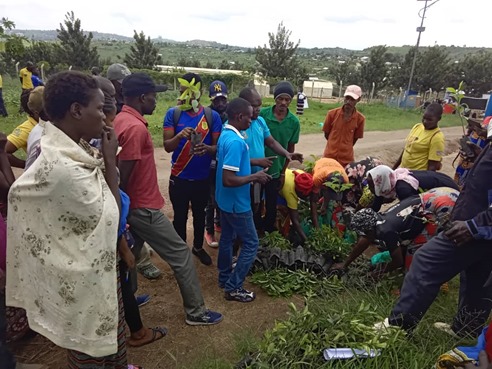
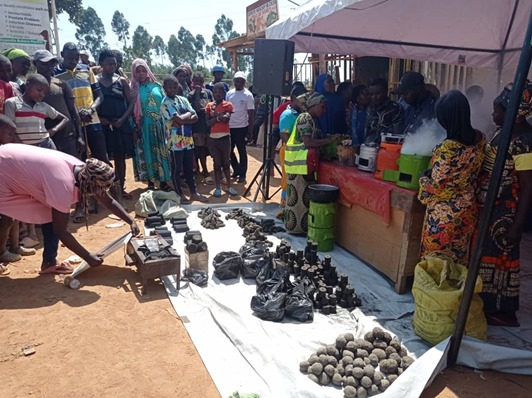
Building a Sustainable Future
Live in Green launched several initiatives that have profoundly impacted the settlement and beyond. One of their flagship programs involves creating community gardens using biodegradable waste components from recycled materials from the Energy Resource and Waste Recovery Centre. These gardens not only provide fresh produce but also serve as a space for education and community building. “We teach each other about sustainable farming practices, composting, and the importance of biodiversity,” Ndayishimiye shares, her eyes sparkling with pride.
The organization conducts workshops on renewable energy and waste reduction. Participants learn how to create solar-powered cooking stoves and briquette systems, empowering them to reduce reliance on scarce resources. “It’s about dignity,” Ndayishimiye explains. “We may be refugees, but we can contribute to a healthier planet.”
Live in Green
The impact of Live in Green has extended far beyond the camp. The organization collaborates with local schools and communities, spreading awareness about climate change and sustainability. They’ve hosted clean-up drives, planted trees, and engaged in advocacy efforts for better environmental policies.
Residents from host communities, initially sceptical, have begun to join their initiatives. “I saw how dedicated they were,” says Amooti, a local farmer. “They taught me how to use less water and improve my yields. Now, we work together.”
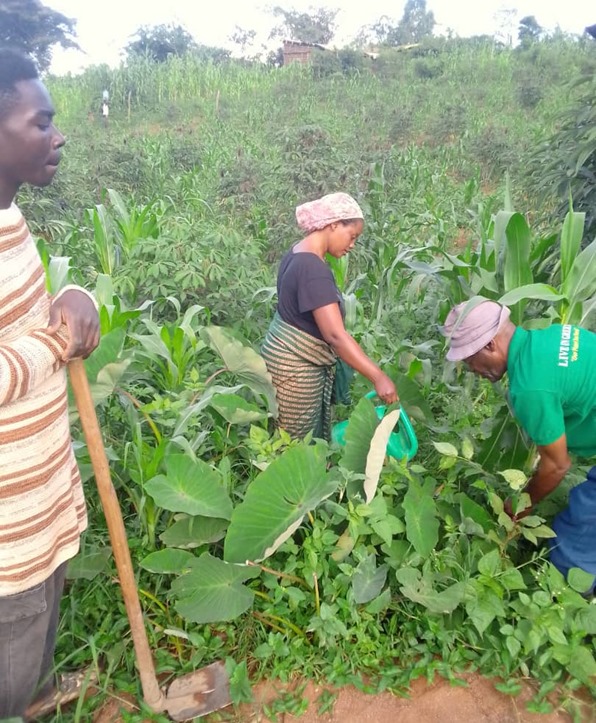
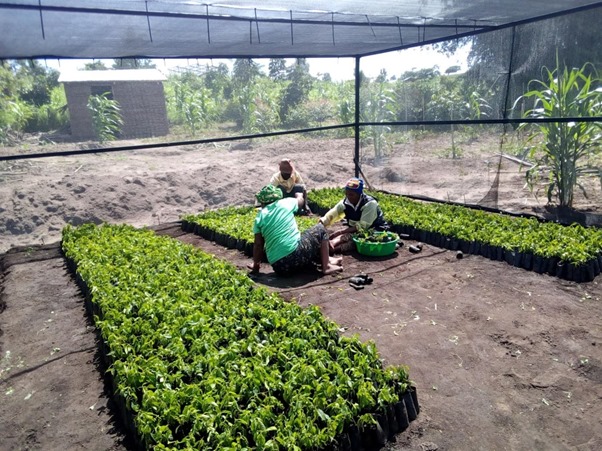
Personal Transformations
For many refugees, Live in Green has been a pathway to personal growth. Aisha, a single mother of three, recalls the day she joined the organization. “I felt lost and hopeless. But through this work, I found purpose. I’ve learned skills I never thought I would have.”
Her children now help in the gardens, learning about the environment and the importance of caring for their future. “They see the changes we’re making and feel proud. It gives them hope,” Aisha says.
Looking Ahead
As Live in Green continues to grow, its leaders are now focusing on expanding their reach. They aim to create partnerships with international organizations to enhance resources and support. “We have a vision for a sustainable future—not just for us but for everyone,” Mr. Solomon the Executive Director declares. “Climate change affects us all, and together, we can make a difference.”
Newsfeed
I CAN South Sudan
Follow up assessment of children with disabilities by 3 stars in Barakala(host community)
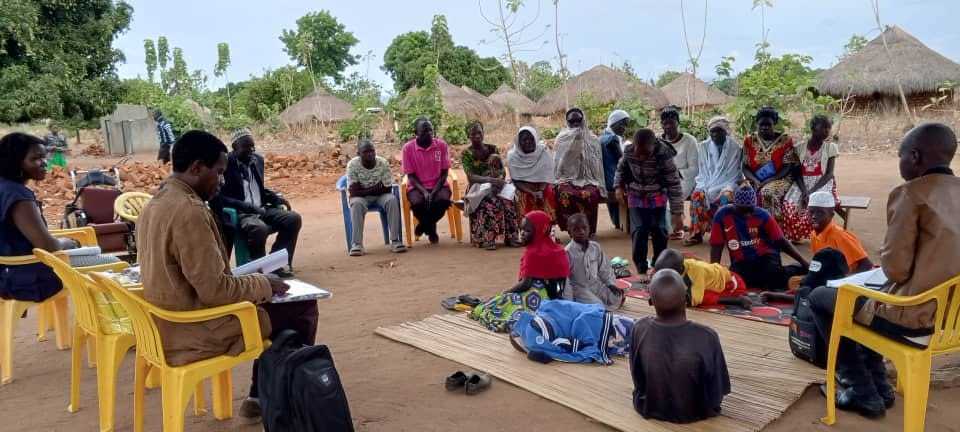
12:24 pm · Mar 20, 2025
0
1

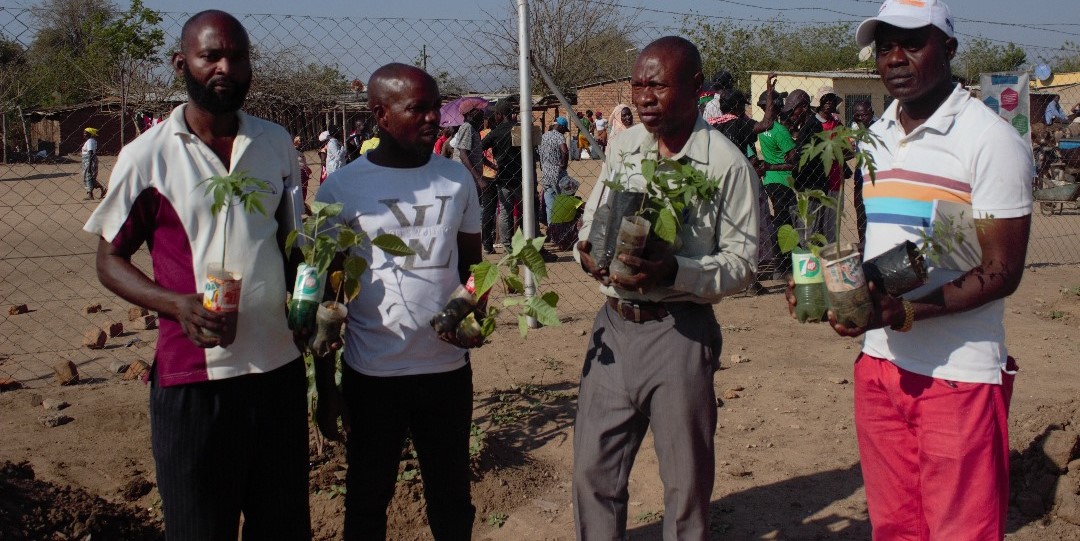




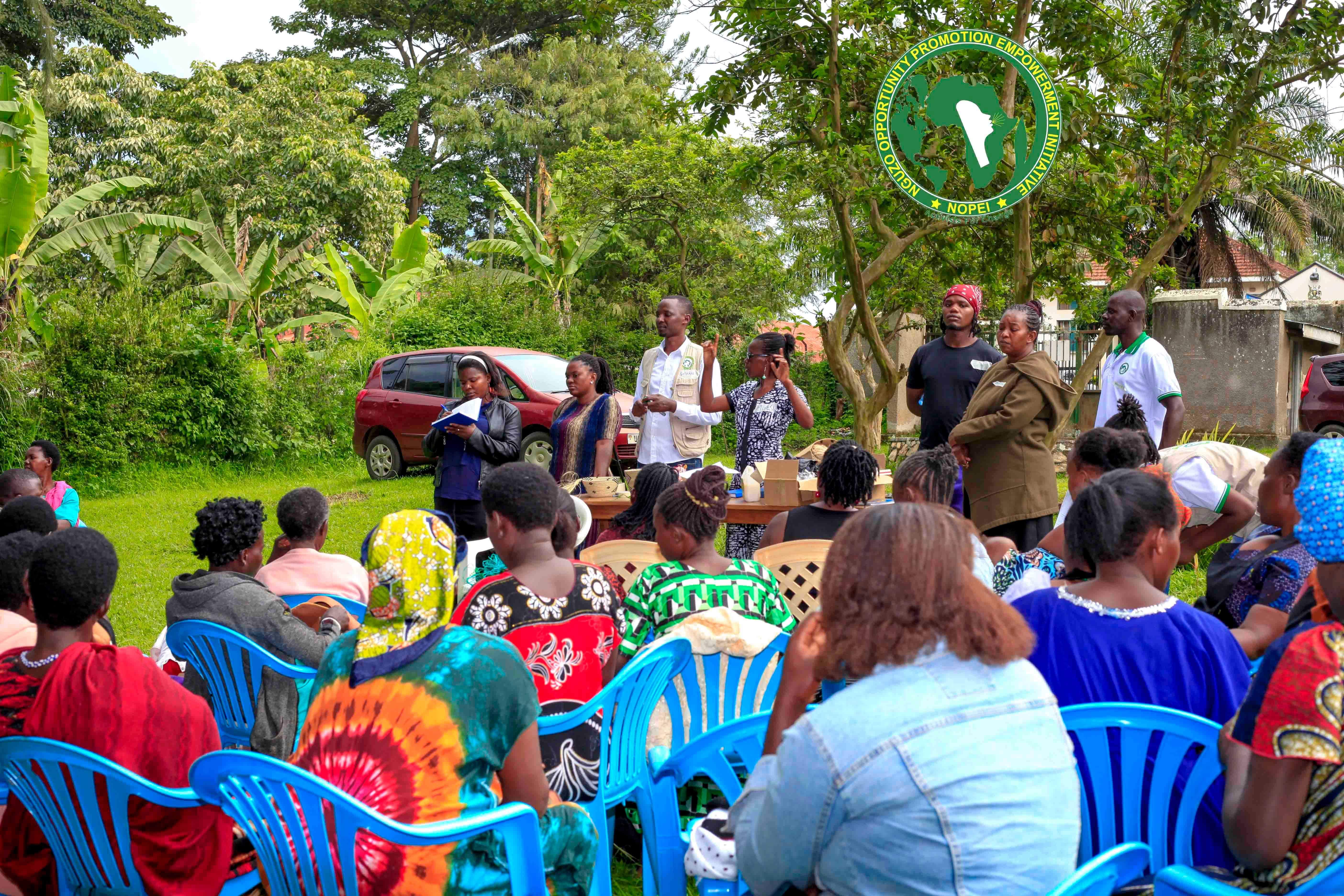
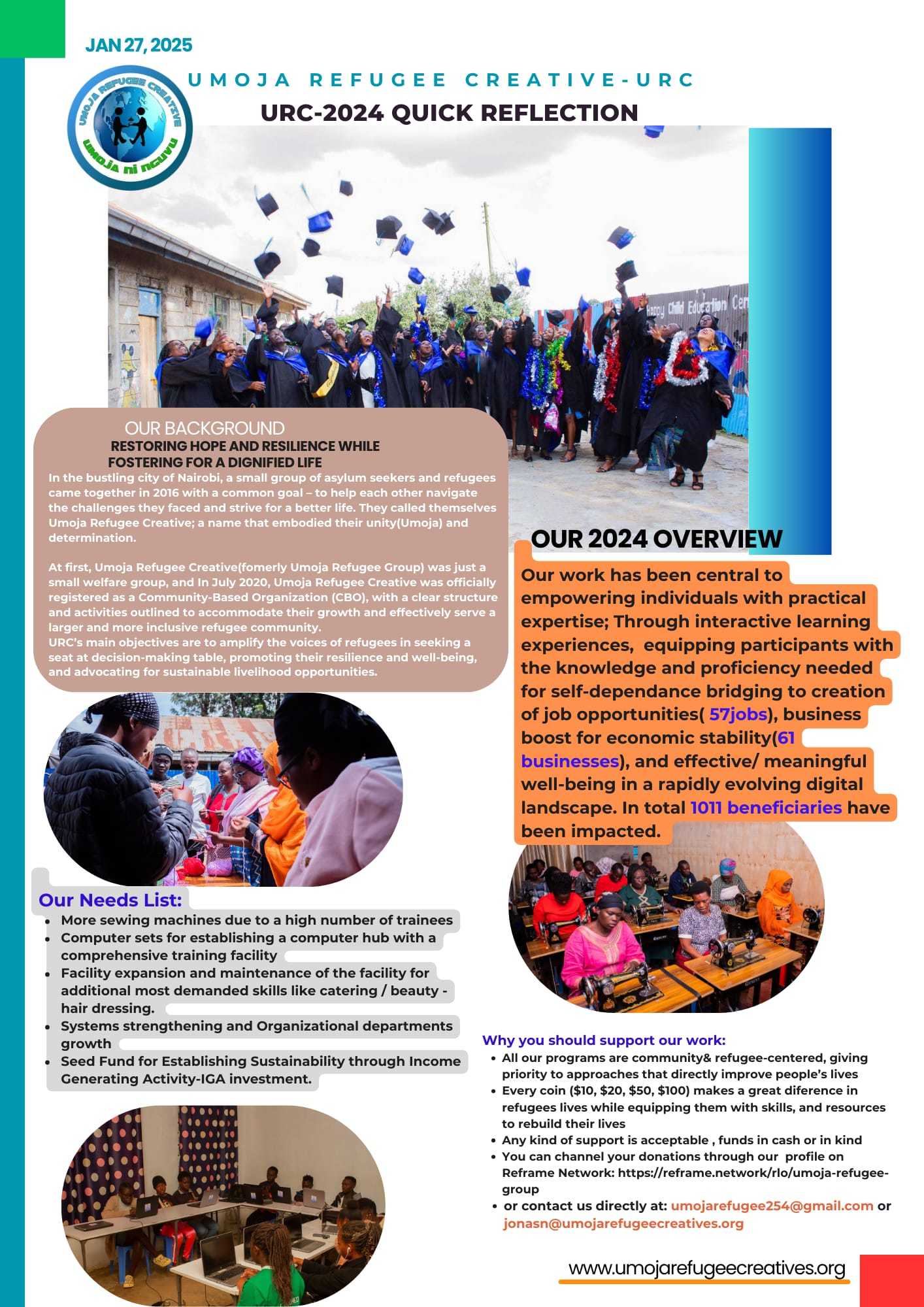

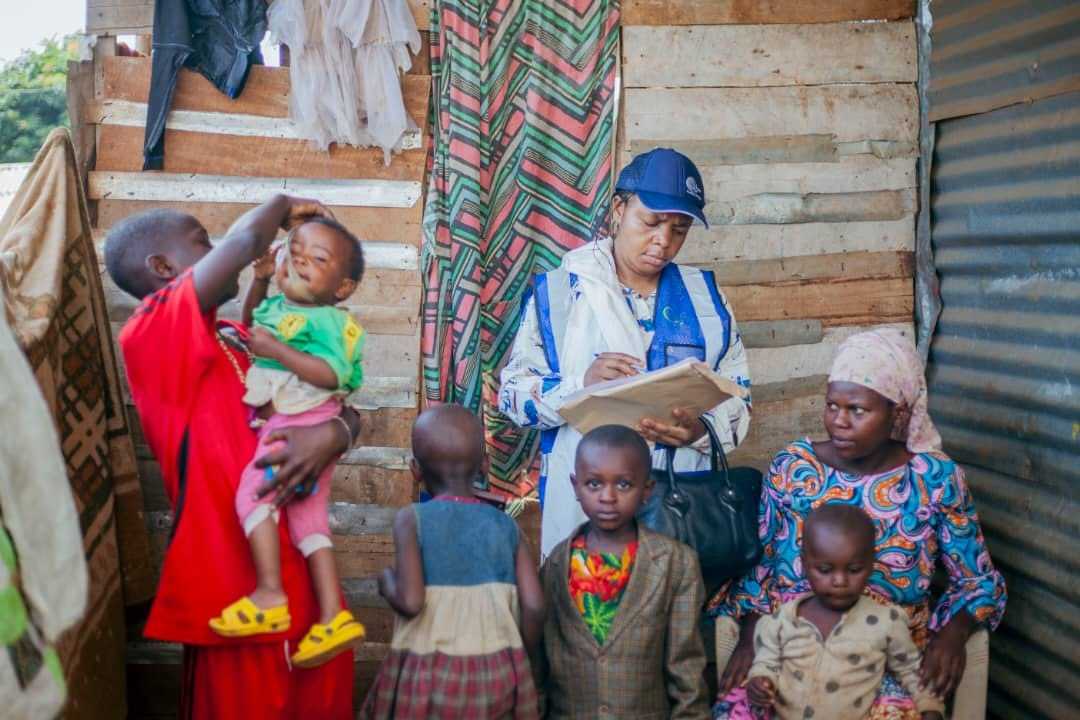
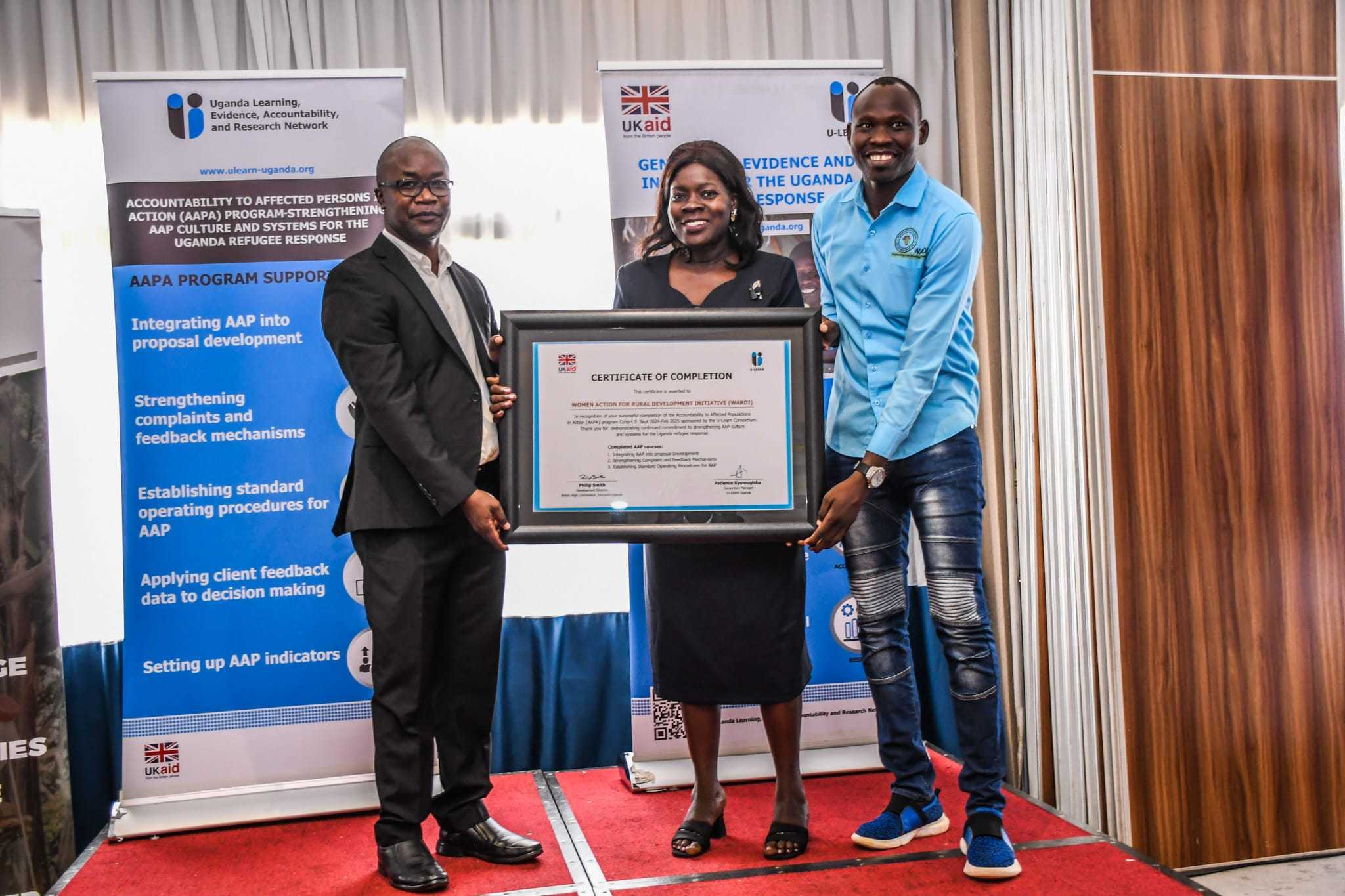

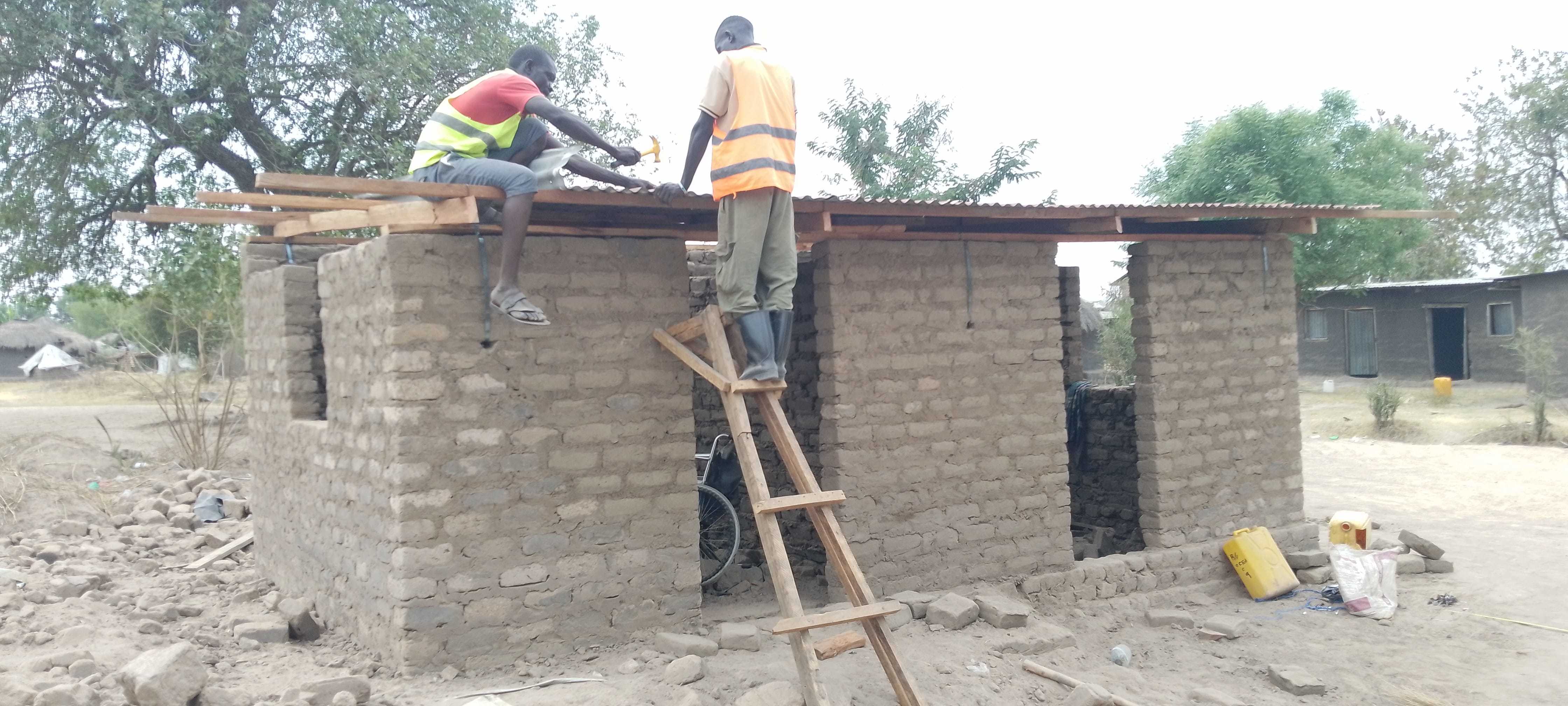
0